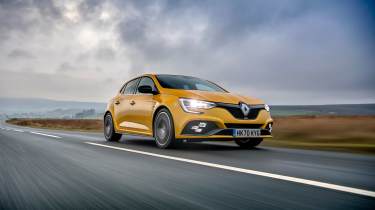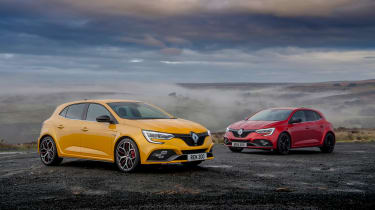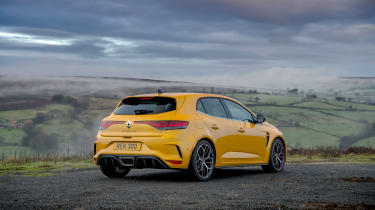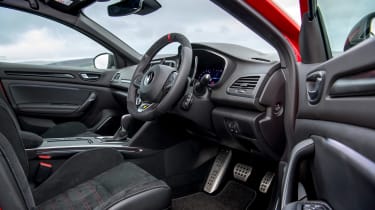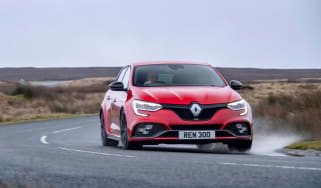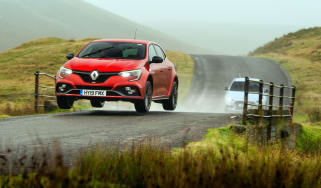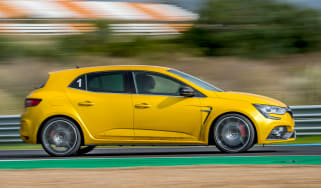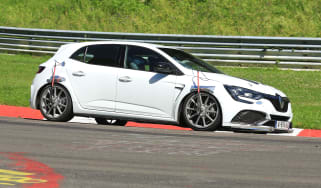Renault Mégane RS (2017-2022) review – the last stand for an iconic moniker
The current Renault Mégane RS might only just be clinging to life, but in recently updated form it’s a better all-round hot hatch than ever
When Renault announced its plans to turn Alpine into an electrified performance sub-brand for its mainstream models in 2021, the inevitable question for anyone interested in hot hatchbacks was where it would leave Renault Sport. The bad news was that the answer quickly followed, being sort of nowhere.
Aside from being the source of some of the greatest hot hatches of the last 30 years, the death of Renault Sport as we know it also has ramifications in regards to the two remaining RS models in the range. Despite the Mégane RS of this current generation having a tricky start to life, there have been real highs amongst some lows, but with some key changes made where does Renault’s only remaining hot hatchback sit following a mid-cycle update?
> 2022 hot hatchback battle: the middleweights
The answer to that question is thankfully it’s now something less dour, as while the trackday toy Trophy-R wasn’t reimagined and the manual option was killed off entirely, what remains is a concise range of two quite distinct RS variants with different appeals and their own pros and cons.
Renault Mégane RS: in detail
- Engine, transmission and technical details – The RS’s basic powertrain is shared with the Alpine A110 and is as enthusiastic as it is there
- Performance and 0-60 time – Acceleration time is on-par for the class at 5.7sec, but the engine’s character stands out against others
- Ride and handling – The RS 300 and RS Trophy have bespoke set-ups with differing strengths and weaknesses
- MPG and running costs – Fuel consumption has taken a big dive post-WLTP and running costs are class-appropriate
- Interior and tech – Not the Mégane’s strongest element, but it’s no deal breaker
- Design – Renault’s big investment in this generation can be seen in its almost completely bespoke body
Prices, specs and rivals
Where once there was a dizzying array of Mégane RS variants with its two chassis options, two engine outputs and two transmissions, the midlife update has dramatically cut the range to just two models. Both share the same 296bhp engine specification paired to a six-speed dual-clutch transmission, but differ on chassis spec and some hardware.
More reviews
Reviews
- Renault Megane E-Tech 2022 review
- Renault Megane RS 300 2021 review – less is more with this GTI rival
- Renault Megane RS sport chassis (2017-2020) review – forget the Trophy, basic is best with the Megane RS
- Renault Megane RS Trophy (2019-2020) review – is this Renault Sport’s redemption?
- Renault Megane RS cup chassis (2018-2020) review – sharp, even when you don't want it to be
- K-Tec Racing Mégane review
- New Renault Megane GT and diesel review
The base RS 300 costs from £34,990 and comes with a softer Sport chassis set-up alongside 18-inch wheels and a good standard kit list which includes LED headlights, a large portrait-oriented R-Link infotainment system and black cloth-covered sports seats. In terms of chassis hardware, the 300 still packs a powerful set of Brembo brakes, a bimodal exhaust and the rear-wheel-steering system, but the full set is reserved for the Trophy.
Part with an extra £4450 and the £39,440 RS Trophy with its stiffer Cup chassis builds on the hardware with a limited-slip differential, bi-material brake pads, lighter 19-inch wheels and a red finish to the Brembo brake calipers. Inside, the black cloth seats are replaced with Alcantara trim, which is replicated on the door cards and steering wheel. You’re also able to option the excellent Recaro buckets on the Trophy which are not available on the 300 model.
The Trophy-R with its infamous £72,000 price tag in top-spec form has not been reimagined for the update, and while the notion of a final celebration of the Mégane RS with one final track-focused variant would certainly go down well, Renault Sport’s virtual disbandment and the focus on Alpine within the Renault group has likely called time on that one.
In terms of rivals, the Honda Civic Type R is currently in a gap between generations, blasting the hot hatchback class wide open for a new leader. Unfortunately for the Mégane RS, that position was quickly filled by the updated Hyundai i30 N which stands as the new class champion, albeit by a smaller margin than the Honda once held. Now available with both a manual and dual-clutch transmission, and with updates to the seats, wheels and infotainment, the i30 N is more complete than ever while still holding on to its value advantage at £34,045 for the manual and £35,995 for the DCT.
It’s a closer-run thing between the RS and Ford’s Focus ST, the former bettering the latter’s standard models yet coming under serious pressure from the limited-run Edition with its excellent coilovers. When specified properly, the Volkswagen Golf GTI Clubsport does a good job of keeping on the tail of the RS too, but comes in at over £40,000 when decent wheels and tyres and adaptive dampers are added to the already inflated base price. Otherwise, BMW’s 128ti is a quirky alternative that’s less expensive than many rivals at just under £34,550, but also considerably outgunned in a straight line and saddled with BMW’s dishwater dull B48 engine.
> 2022 hot hatchback battle: the final
Click on the links below for our reviews of pre-facelift Renault Mégane RS models
- Renault Mégane RS (sport chassis)
- Renault Mégane RS (cup chassis)
- Renault Mégane RS Trophy
- Renault Mégane RS Trophy-R

